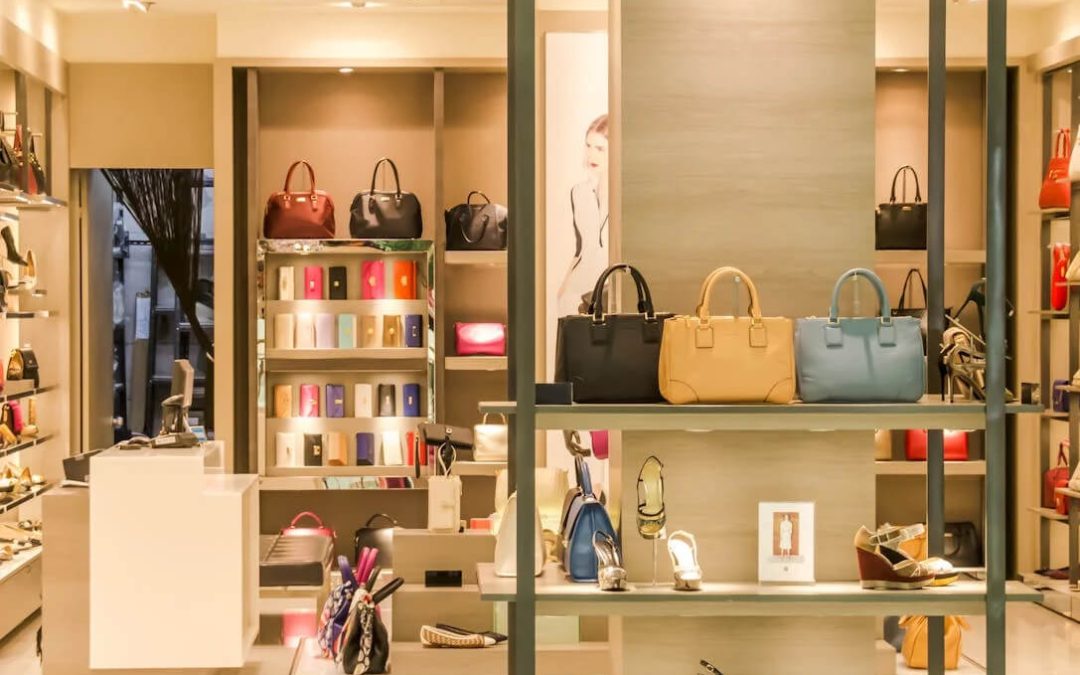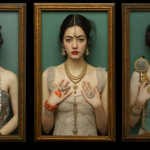By Azka Sikka, Assistant Professor, Department of Fashion Business
In the realm of high-end consumer experiences, mastering the nuanced art of luxury management stands as a pinnacle of success for marketers aiming to captivate the most discerning customers. This sophisticated field goes beyond mere transactions, weaving together the intricate tapestry of unparalleled quality, exceptional service, and the elusive allure of exclusivity. As the luxury market evolves, so does the complexity of managing these opulent brands, requiring a deep understanding of consumer psychology, trend forecasting, and the ability to innovate while preserving the heritage and craftsmanship that define luxury.
Luxury marketing isn’t merely about selling expensive products or customised services. Whether we’re looking at luxury fashion brands, the luxury goods market, or luxury hospitality- it’s about crafting a journey or experience which allows consumers to indulge and buy into a lifestyle which creates a deep-rooted emotion. Luxury engages people with the concepts of heritage, pedigree, craftsmanship, exclusivity, and innovation.
The luxury brand market is driven by building an aspirational narrative and appealing to the consumer psyche. Today, younger consumers are drawn to brands with compelling stories and are keen to indulge in the latest luxury goods, facilitated by globalisation and efficient supply chains. As millennials and Gen Z gain unprecedented spending power, luxury brands like Chanel, Dior, Gucci, Ferragamo, and Louis Vuitton have become increasingly mainstream, diverging from the conservative spending habits of previous generations.
Luxury is no longer the privilege of the few who were born into wealth residing in developed European countries or North America. There is now a larger demographic base with a wider age group that not only has the money to splurge but want a real value proposition. This new luxury consumer favours an ‘experience over ownership’. They strongly believe in the YOLO (you only live once) and FOMO (fear of missing out) theory and focus more on experiences rather than just big-ticket product purchases.
The demand for luxury experiences among wealthy consumers has led to the development of luxury brand management, a field that goes beyond standard marketing to create experiences marked by quality, exceptional service, and exclusivity. It demands a deep knowledge of consumer trends, innovative thinking, and the preservation of luxury’s essence. Understanding luxury management is crucial for marketers to devise strategies that keep brands prestigious in a competitive market. A degree in Global Luxury Brand Management prepares leaders with the skills to turn luxury market challenges into business opportunities.
Luring by the Luxe
Luxury companies stand out in a global marketplace dominated by ever-changing consumer expectations for craftsmanship, legacy, and distinction. From haute fashion businesses to high-end vehicle manufacturers, luxury brands command not only high costs but also loyal followers by evoking emotions and offering a unique and luxury experience. They thrive on exclusivity, aiming to take the customers to a world that is just out of reach for the common person—one of unparalleled workmanship, history, and grandeur.
Today’s luxury brand managers need to create intangible value that makes luxury brands incomparable with any other brand. Their goal is to help customers picture the workmanship, passion, and dedication that goes into each one, making it far more appealing. As a result, luxury brand management has become the key driver of the fashion industry’s success. At Pearl Academy, students are equipped with mastering the subtle art of luxury brand management to apply innovative and creative approaches to the quickly expanding luxury business.
Connecting with the Audience
One of the fundamental pillars of successful luxury branding is to identify and connect with the target audience. Understanding the target audience’s aspirations, desires, and preferences allows one to tailor the brand’s messaging, experiences, and offerings to resonate with them effectively. Keeping in mind the features and prospects in luxury goods, events, and services, Pearl Academy’s curriculum focuses on giving vital insights for luxury brands to make educated decisions about their strategic business activities and deliver excellent customer experiences across many industries, resulting in a competitive edge.
From omnichannel retail to now ‘phygital’ retail, the sole point of distribution, which used to be a brick-and-mortar store- has taken a quantum leap.
Luxury brands have so far adopted features like ‘a magic mirror to entire product history’ to i-Pad-based checkout etc to connect and offer familiarity with the millennial, Gen Z and even influence the Generation Alpha.
Consistency Across Brand Touch Points
Consistency is essential in successful premium branding. It promises that the brand is recognised consistently across all touchpoints, reinforcing its uniqueness, ethics, and promises. In short, it fosters a strong and recognisable brand presence that connects with the target audience. This requires having brand guidelines that define the verbal and visual components of the brand itself.
With a strong focus on teaching the essential framework for marketing, branding and communication strategy, Pearl Academy enables students to learn, design and implement successful brand strategies, think critically, and recalibrate how they persuade and connect with customers. The mix of certified coursework and real-life professional projects enables students to strengthen their academic foundation while also acquiring significant work experience that will prove beneficial in their future career path.
The first interaction with brand, be it through physical store digital interaction, significantly influences overall perception of the brand. This is also known as the ‘Halo Effect’- where one positive aspect leads to a positive overall judgement. Touchpoints also helps to establish a consistent and recognizable brand identity which is not only crucial but also imperative in today’s non linear world.
Luxury Brand Marketing = Experiential Marketing
Experiential marketing focuses on magnifying a product’s essence through tangible, practical, and interactive experiences to reinforce its offer. It takes into consideration marketing initiatives that give consumers in-depth, tangible experiences to provide them with relevant information to make a motivated decision. The role of the marketing professional is to leverage the rich histories and narratives of the brand to create a unique identity that resonates with consumers seeking a sense of exclusivity and sophistication.
Overall, at Pearl Academy, students receive hands-on learning via interdisciplinary courses, collaborative projects, internships, and local and global industry visits, focusing on exclusivity, craftsmanship, and luxury principles across various industry sectors. An MBA in Luxury Management equips students with strategic, creative, and digital skills essential for the luxury sector. They learn strategies, client management, luxury retail and services, brand management, operations etc., gaining insights from industry experts from top luxury brands like Louis Vuitton, Ferragamo, Chanel etc. Students have opportunities in areas such as Branding/PR, Retail Buying, Visual Merchandising, Store Management, Merchandising with Brands and/or Marketing Agencies in fashion, lifestyle, goods, hospitality etc across the luxury spectrum.
India’s HNI and UHNI population is growing at a rapid pace . The luxury industry in India today is valued at $17 billion , and is expected to be $90 billion by 2030. This means more opportunities for luxury retailers in India leading to an increase in job opportunities as well.
As luxury brands continue to shape the global marketplace, mastering the art of luxury brand management is essential for marketers to connect with the right, niche target audience, maintain consistency across brand touchpoints, and embrace experiential marketing.












